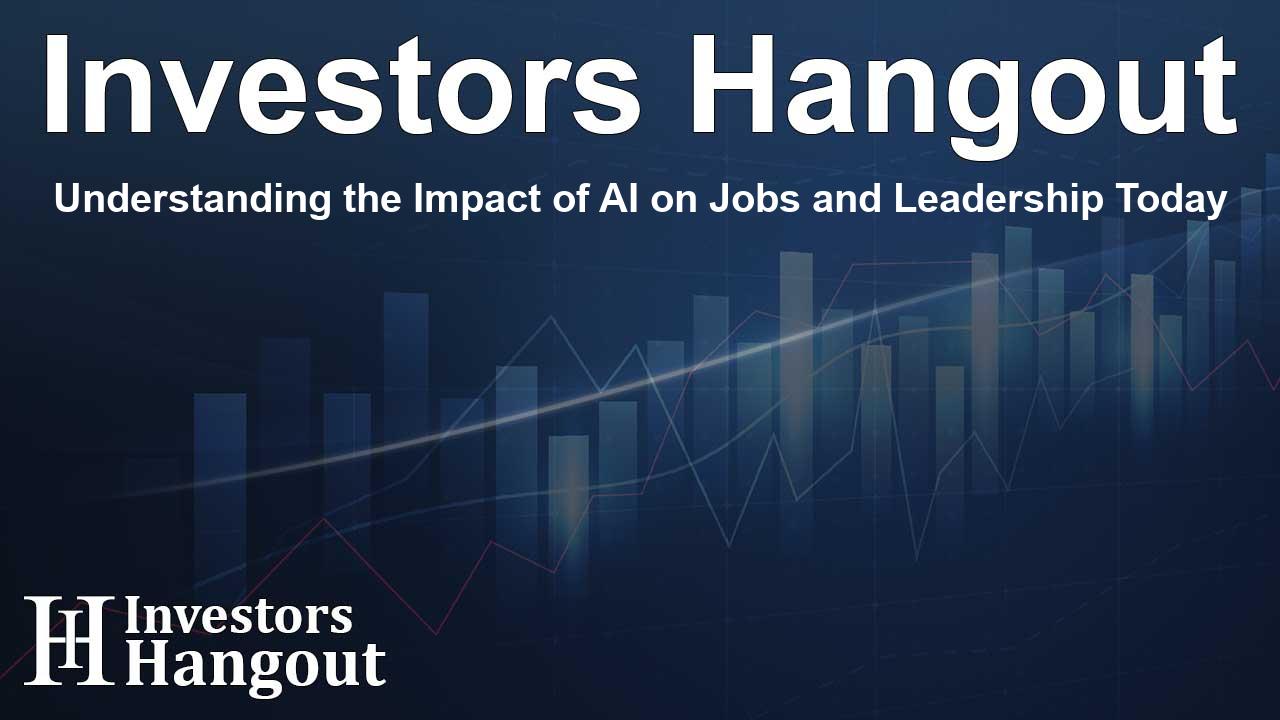Understanding the Impact of AI on Jobs and Leadership Today

The Shift in Employment: AI's Role
The landscape of employment is rapidly evolving, especially as artificial intelligence continues to develop. Students are even modifying their career choices to pursue 'AI-proof' opportunities. Mo Gawdat, a former chief business officer at Google X, shares a stark perspective on the situation. He argues that the optimistic belief that AI will simply replace menial tasks with new job creation is misleading. In his view, that notion could not be further from the truth.
Insights from Mo Gawdat
With a wealth of experience at Google's ambitious projects, Gawdat joined a podcast to articulate a more sobering message about the realities of AI's integration into the workforce. He emphasizes that while elite software developers and top-tier talent might maintain their positions for some time, the advent of artificial general intelligence (AGI) poses a looming threat to all roles, even for the highest achievers.
The Rise of Artificial General Intelligence
Gawdat points out that AGI refers to systems capable of executing tasks across various domains, rivaling human intelligence. He expresses concern that this will inevitably lead to the replacement of leaders who fail to demonstrate exceptional capability. Gawdat warns that many incompetent CEOs might find themselves at risk of being overshadowed by AI's superior performance.
The Implications for Leadership
This discussion prompts us to consider the broader implications of AI in leadership roles. If machines can exceed human competence, no title or corner office will guarantee job security. Gawdat's insights resonate with many employees who believe that the traditional hierarchy could face significant shifts as intelligence becomes more embedded in corporate culture.
The Current State of AI Integration
Gawdat further illustrates the impact of artificial intelligence through his current venture, where he acknowledges a stark change in workforce requirements. His startup, built with a minimal team thanks to AI efficiency, exemplifies a reality where hundreds of jobs could vanish before a company even launches its products. This departure from conventional staffing raises legitimate concerns for many professionals.
Jobs at Risk
As we look ahead, Gawdat anticipates that AI's full impact might become evident in a few years, projecting a challenging period for many workers. He describes a potential 'short-term dystopia' characterized by significant layoffs and growing economic disparities, casting a shadow over job security as the benefits of AI are distributed unevenly.
The Solutions We Need
While Gawdat acknowledges the transformative potential of AI, he stresses that the challenges arise not from the technology itself but from the human systems surrounding it. He believes that the issues plaguing modern corporate structures must be addressed to fully leverage AI's capabilities for societal benefit. Without a shift in ethical considerations and human values, AI may not fulfill its promise of delivering advancements freely and equitably.
Preparing for the Future
To thrive in this new environment, Gawdat advises individuals to focus on maximizing their unique skills and become irreplaceable in their roles. The impending rise of AI does not solely target low-skilled jobs; instead, it extends its reach to high-skilled creative positions, tech roles, and corporate leadership. The message is clear: individuals who do not adapt may find themselves vulnerable to replacement.
Frequently Asked Questions
What does Mo Gawdat mean by AI being '100% crap' in job creation?
Gawdat suggests that the idea AI will create numerous new jobs is overly optimistic and unlikely to be true.
Can AI replace CEOs as Gawdat claims?
Yes, Gawdat believes AGI will perform tasks better than many current CEOs, leading to potential replacements.
What should professionals do to stay relevant in the age of AI?
Gawdat advises individuals to enhance their skill sets to remain indispensable in their careers.
Why does Gawdat think there will be increased inequality due to AI?
He warns that AI may benefit certain sectors, causing economic disparities among workers.
What role does ethical consideration play in AI development according to Gawdat?
Gawdat emphasizes the need to adjust human values to ensure AI technologies serve the greater good without exacerbating existing issues.
About The Author
Contact Evelyn Baker privately here. Or send an email with ATTN: Evelyn Baker as the subject to contact@investorshangout.com.
About Investors Hangout
Investors Hangout is a leading online stock forum for financial discussion and learning, offering a wide range of free tools and resources. It draws in traders of all levels, who exchange market knowledge, investigate trading tactics, and keep an eye on industry developments in real time. Featuring financial articles, stock message boards, quotes, charts, company profiles, and live news updates. Through cooperative learning and a wealth of informational resources, it helps users from novices creating their first portfolios to experts honing their techniques. Join Investors Hangout today: https://investorshangout.com/
The content of this article is based on factual, publicly available information and does not represent legal, financial, or investment advice. Investors Hangout does not offer financial advice, and the author is not a licensed financial advisor. Consult a qualified advisor before making any financial or investment decisions based on this article. This article should not be considered advice to purchase, sell, or hold any securities or other investments. If any of the material provided here is inaccurate, please contact us for corrections.
